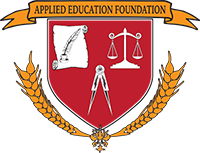Society for Industrial and Applied Mathematics (SIAM), “SIAM exists to ensure the strongest interactions between mathematics and other scientific and technological communities through membership activities, publication of journals and books, and conferences. SIAM is an international community of over 14,000 individual members. Almost 500 academic, manufacturing, research and development, service and consulting organizations, government, and military organizations worldwide are institutional members. SIAM fosters the development of applied mathematical and computational methodologies needed in these various application areas. Applied mathematics in partnership with computational science is essential in solving many real-world problems. Through publications, research, and community, the mission of SIAM is to build cooperation between mathematics and the worlds of science and technology.” http://www.siam.org
Better Math Teaching Network, “We are a network of teachers and researchers committed to improving math instruction, making it more student-centered, with the goal of engaging more students.” http://www.bettermathteachingnetwork.org/?
Society of the History of Technology (SHOT), “The Society for the History of Technology is dedicated to the historical study of technology and its relations with politics, economics, labor, business, the environment, public policy, science, and the arts. SHOT is an international organization that actively works to foster a stronger global community for the study of the history of technology and to support a worldwide network of scholars in this field.” http://www.historyoftechnology.org
The Bulletin of Primitive Technology, “The purpose of The Bulletin of Primitive Technology is to: 1 - Promote the practice and teaching of primitive skills. 2 - Foster communication between teachers and practitioners. 3 - Set standards for authenticity, ethics, and quality.” http://www.primitive.org
The Center for Financial Literacy, “Champlain College's nationally acclaimed, one-of-a-kind financial literacy program hopes to increase knowledge of money matters in classrooms, ensure college students graduate with the skills to make sound decisions about spending, credit and investments, and help adults navigate difficult financial situations like buying a home and saving for retirement. The Center for Financial Literacy is a partnership among several financial institutions, non-profit entities and governmental agencies. The Center is designed to promote and develop financial literacy skills in K-12 students, college students, teachers (K-12 and college) and adults. The Center will also advocate for more financial education opportunities at the local, state and national level. The Center has launched a variety of programs aimed at increasing the personal finance sophistication of our citizens. A lack of knowledge about credit, investing and financial planning is at the heart of the recent economic downturn. "The Great Recession demonstrated that our citizens struggle when making complex financial decisions that are critical to their well being. Some of our economic problems were created by bad actors, focused on personal gain, but so many others were created by good people making poorly informed personal financial decisions," notes the Center's director, John Pelletier.” http://www.champlain.edu/centers-of-excellence/center-for-financial-literacy
Council for Economic Education, CEE promotes teaching economics to students, “The Council for Economic Education (CEE) is the leading organization in the United States that focuses on the economic and financial education of students from kindergarten through high school—and we have been doing so for over 65 years. CEE delivers the fourth “R” – a real-world understanding of how to build fruitful lives – to America’s young people. Our goal is to reach and teach every child to create a more informed citizenry capable of making better decisions as savers, investors, borrowers, voters, and participants in the global economy. We do this by educating the educators: providing the curriculum tools, the pedagogical support, and the community of peers that instruct, inspire, and guide. All resources and programs are developed by educators, and delivered by our national network of affiliates—over 240 across the country. Each year, we train approximately 55,000 teachers in person, and those teachers, in turn, reach approximately 5 million students throughout the country. EconEdLink – our free, online educator gateway for economic and personal finance lessons and resources – attracts more than 1.2 million unique visitors each year.” http://councilforeconed.org/about/
MBA Research, “Its mission is to support educators in the preparation of students for careers in business.” http://www.mbaresearch.org
The Enlightenment, Early Childhood Education http://www.faqs.org/childhood/Co-Fa/Enlightenment-The.html
Epictetus, Stoic, moralist http://plato.stanford.edu/entries/epictetus/
Todd Rose, Why students should own their educational data, The Chronicle of Higher Education, Aug. 21, 2014.
